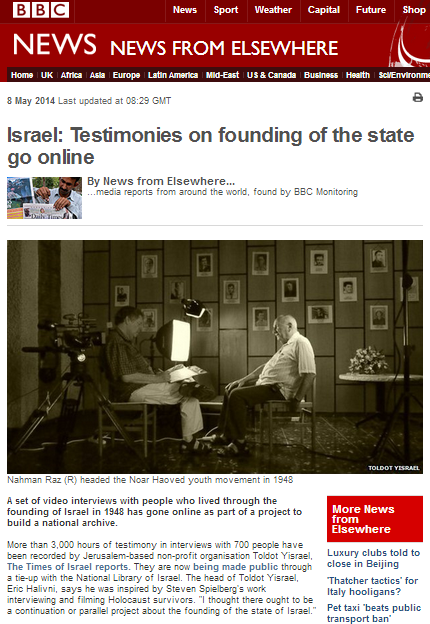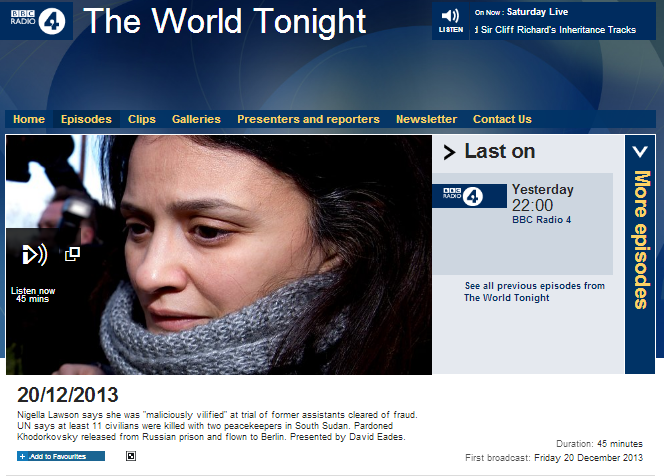On May 8th a short item compiled by BBC Monitoring appeared in the ‘Features & Analysis’ section of the BBC News website’s Middle East page under the title “Israel: Testimonies on founding of the state go online“.
The article is based entirely upon a report by Mitch Ginsburg about Eric Halivni’s project ‘Toldot Israel’ which appeared in the Times of Israel on May 5th. The BBC’s article states:
“The Times of Israel highlights the case of Elad Peled, who was 20 when he became the commander of Hebrew forces in the majority-Arab city of Safed in the spring of 1948.”
Indeed, in his report Mitch Ginsburg did bring readers the story of Maj. Gen. (ret.) Dr Elad Peled as recounted at the recent press conference announcing the partnership between Halivni’s project and the National Library. Ginsburg’s article ends with the following words:
“Today, Peled said that while he feels privileged to have taken part in the founding of a state — a claim only a small percentage of people in the world can make — there is “a mixed feeling” about the end result.
“Not exactly what we thought would happen,” he said of today’s state of affairs and of the absence of peace, “but that’s life. It’s not a textbook.” “
BBC Monitoring, however, chose to represent Ginsburg’s account of Dr Peled’s words thus:
“Today Peled says he feels privileged to have taken part in the founding of a state, but he has mixed feelings about the end result. The continuing conflict between Israelis and Palestinians 66 years after the declaration of independence is “not exactly what we thought would happen”, he says, adding “That’s life. It’s not a textbook.” ” [emphasis added]
Whether or not Dr Peled’s words indeed referred specifically to the Palestinian–Israeli conflict or to the wider Arab-Israeli conflict or perhaps even to something else, we do not know from the account published in the Times of Israel. And neither does BBC Monitoring. Nevertheless, someone in that department apparently thought that the embroidering of that account to focus on one possible interpretation was acceptable within BBC editorial guidelines on accuracy.




